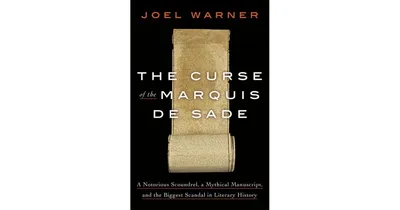Home
Bad Rapping of the Marquis de Sade



Bad Rapping of the Marquis de Sade
Current price: $19.99
Loading Inventory...
Size: OS
One of the best
recordings,
presents
's unique brand of storytelling, incorporating references to the burgeoning beatnik counterculture into his already
-esque tall tales. The fluidity of his delivery is likewise enhanced by his inimitable ability to verbally improvise with a feline-like sense of timing and precision. The results as heard throughout the routines on this album vacillate between mildly amusing to deeply and often profoundly funny. These tracks were initially issued on the second side of the 1966 release
.
's humor is normally relayed through extended narratives, such as the disc's infamous title track or his musings on the origination of the
also includes a shorter work,
His ability to shock and surprise is not based upon working "blue" (read: dirty or pornographic). His many references to sex, drink, and the consumption of questionable ingestibles are used to create and maintain a setting realistic to his socially subcultured audience, rather than being the substance of his shtick. The point at which
, humorist and human intersect is aptly stated at the outset of the
in the assertion that "people should worship people." Not only does
use various levels of humor to espouse and exemplify his philosophy, it is done in such an innocuous way it becomes practically subliminal. Part of the real beauty of the live portions -- recorded at
in Oakland, CA, during the months just prior to
's death -- is hearing the immediate exchanges between the lords and the ladies of
's "royal court of hip," which only adds psychic energy and fuel to the intensity of his recitations and interactions.
is nothing short of an essential -- yet oft overlooked -- treasure in the rich social tapestry of recorded American comedy. [Some reissues amend the program order slightly from the original 1969 disc. The final track, "Nero" -- available on the Buckley CD compilation
-- is substituted for two additional extended studio recordings: "Maharajah" and "Scrooge."] ~ Lindsay Planer


















